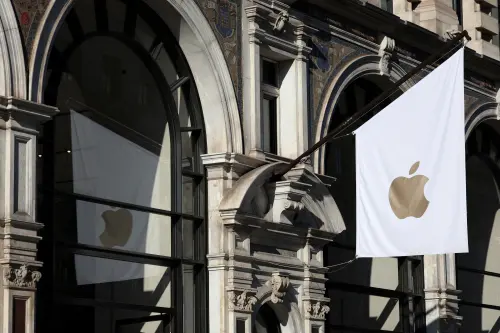A London court hearing reportedly involving Apple's challenge against a British government order to establish a "back door" to its encrypted cloud storage systems was held in secret on Friday. Despite a formal media request, journalists were not permitted to attend.
According to The Washington Post in February, Britain issued a "technical capability notice" to Apple to allow access to encrypted messages and photos, even for users outside the country.
In response, Apple implemented its most advanced security encryption for cloud data, Advanced Data Protection, for new users in Britain.
Details of the case remain confidential, and neither Apple nor the British government has confirmed the technical capability notice publicly. The BBC reported that on Friday, an application referred to as "an application in private" at the Investigatory Powers Tribunal, where Apple challenged the order, took place. James Eadie, representing the government in significant legal matters, was present, but declined to comment. Apple did not immediately respond to inquiries.
A lawyer representing 10 media organizations, including Reuters and the BBC, requested the tribunal to hold the case publicly. Although the court acknowledged receipt of the request, the lawyer was not summoned to present further arguments, and no journalists were allowed in the courtroom. The hearing concluded after approximately six hours.
Privacy International and Liberty, two civil rights groups, have also contested the case secrecy and the technical capability notice issuance. Caroline Wilson Palow, Legal Director at Privacy International, criticized the situation as "unacceptable and disproportionate," emphasizing the importance of encryption in protecting individuals worldwide from various abuses.
The ongoing debate between governments and tech companies over strong encryption to safeguard users' communications has come to light, with Britain's demands viewed as extensive. U.S. President Donald Trump voiced opposition to the British demand, indicating concerns over privacy. U.S. officials are examining whether the demand breaches the CLOUD Act, which prohibits Britain from compelling data requests involving U.S. citizens and vice versa.
Britain's Home Office has refrained from commenting on the case and Security Minister Dan Jarvis informed parliament last month that the government policy neither confirms nor denies the existence of technical capability notices. Jarvis stressed the necessity of balancing privacy and security, emphasizing that both are achievable simultaneously.
